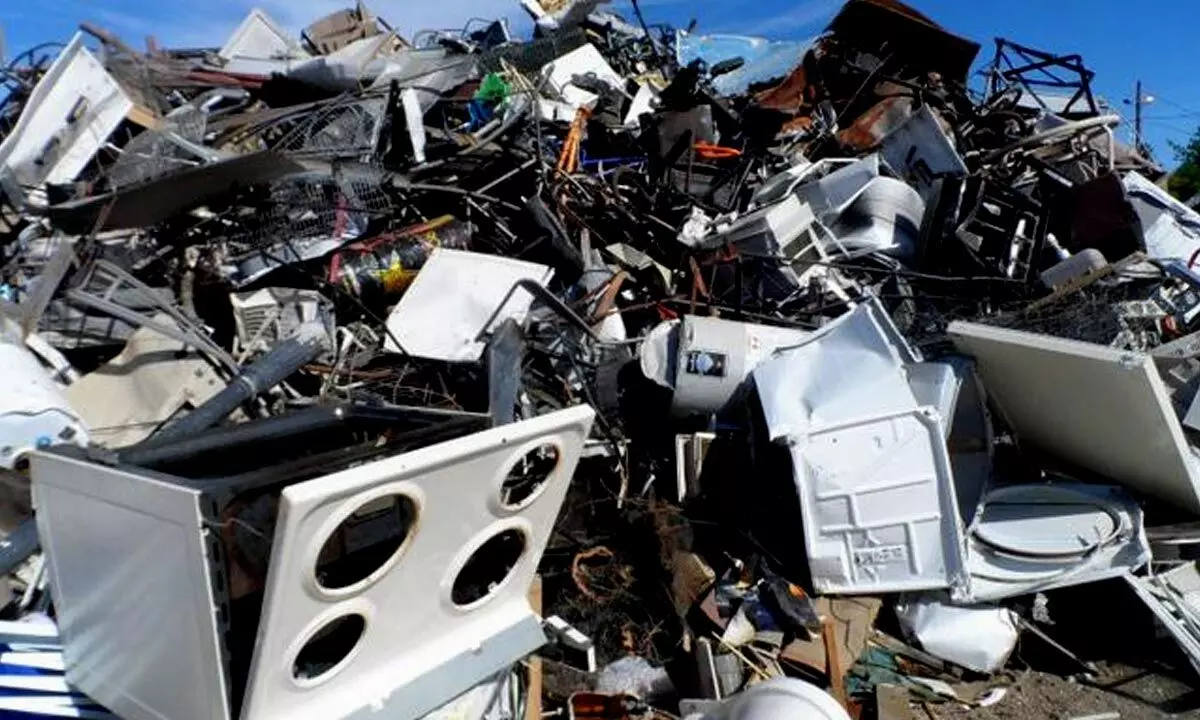Giving impetus to the ‘zero waste’ by 2030 drive
Devising and implementing policies to promote sustainable tourism that creates jobs and promote local culture and products by 2030 tops the agenda for sustainable development goals.
image for illustrative purpose

Devising and implementing policies to promote sustainable tourism that creates jobs and promote local culture and products by 2030 tops the agenda for sustainable development goals. This needs a firm resolve to maintain zero waste, which calls for throwing away less and making better use of what humanity produces and to design products that don’t end up as waste, especially after just a single use. The benefits of zero waste include clean seas and fresh air, fertile soils and sanitary cities, and resilient economies and sustainable extraction. However, this is possible by way sincere efforts to reduce, reuse, redesign and recycle waste. This is a key component of circularity, which is the concept that the potential waste a product generates before its lifespan expires is considered at the point of manufacture. A circular economy involves reduction and minimization of waste through product life cycles.
Zero waste requires action from all stakeholders, including governments, civil society, businesses, academia, communities, women and youth.
Türkiye, which put forward the resolution establishing the International Day of Zero Waste alongside 105 other countries, is among the leaders of the zero-waste movement. Through its zero-waste project launched in 2017, the government provides support for putting in place zero-waste management systems across all 81 provinces. The project has helped recover 33 million tonnes of recyclable waste, including 20 million tonnes of paper and cardboard and five million tonnes of plastic. This has resulted in about 62 billion Turkish lira ($3.3 billion) in economic gain and savings in energy and water use and storage space. Habits have started changing with population growth, urbanization, industrialization and technology. “Zero waste is about redesigning our systems and changing our habits so that all resources are used sustainably. We aim to leave a clean and developed Türkiye and a livable world to future generations,” is their governing dictum.
The Waste Wise Cites Tool has supported the development of comprehensive waste management plans and tangible projects around the world since its launch in 2021. This includes a $7-million project to improve municipal solid waste management in 13 coastal cities in Lebanon, a nine-city project in the Dominican Republic and a $3-million project in Dar es Salaam, Tanzania. Data from the tool also helped inform the global estimate of SDG indicators, which provides insights into the transition towards zero waste at global, national and local levels.
With the world celebrating first International Day of Zero Waste on March 23 of this year, experts hope that promoting zero-waste initiatives and highlighting the waste crisis can inspire global action. A feature of the day is that UNEP and UN-Habitat jointly aim to highlight the importance of responsible consumption and production practices and urban waste management. This calls for rethinking humanity’s waste-related practices and embracing a circular economy, which means reducing resource use and emissions to the environment throughout all stages of a product’s life cycle. This is considered fundamental to addressing the triple planetary crisis of climate change, nature and biodiversity loss, pollution and waste.

